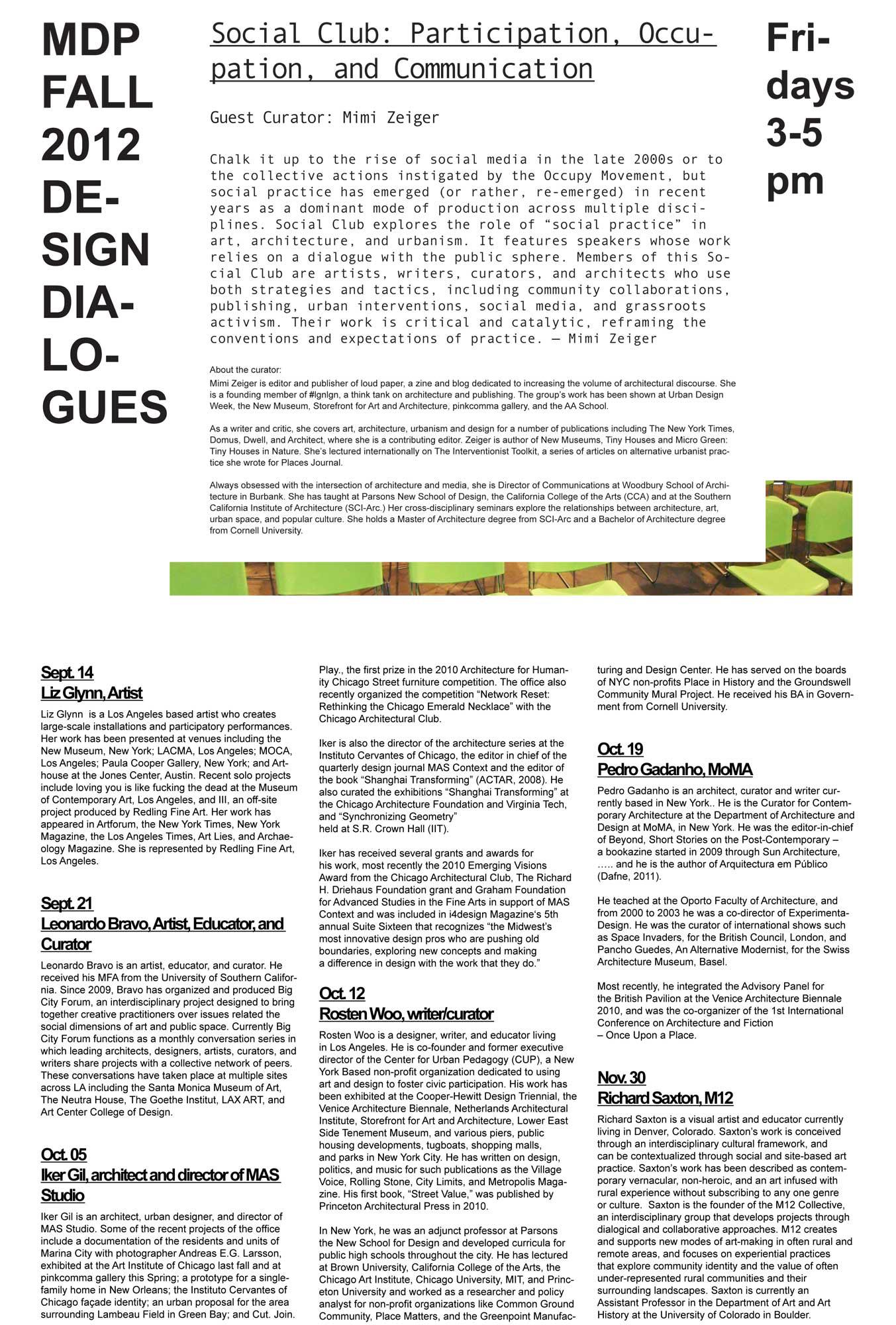The Museum of Art, Architecture and Technology (MAAT), whose swooping form hugs the bank of the Tagus River in Lisbon, Portugal, welcomed 22,000 visitors on its opening day in early October. Designed by British architect Amanda Levete and commissioned by the EDP Foundation, the cultural wing of gas and electric corporation Energias de Portugal, the museum is the latest addition to the foundation’s historic campus, which includes the renovated Central Tejo power station, whose main building and old boiler and turbine halls have been converted into galleries and art spaces. Read More …
When Barry Bergdoll, MoMA’s outgoing Philip Johnson Chief Curator of Architecture and Design, took the podium at an October workshop for Uneven Growth: Tactical Urbanisms for Expanding Megacities, he warmly welcomed the participants, who had gathered at the Museum from around the globe. On hand to embark on a yearlong study exploring potential architectures of global urbanism were architects and researchers from Boston and Brazil, New York and Nigeria, as well as from Spain, Switzerland, the Netherlands, India, France, Turkey, and Hong Kong, all of whom had been selected by architecture curator Pedro Gadanho. Read More …
Advisory Board Member and Respondent
In 2030, the world’s population will be a staggering eight billion people. Of these, two-thirds will live in cities. Most will be poor. With limited resources, this uneven growth will be one of the greatest challenges faced by societies across the globe. Over the next years, city authorities, urban planners and designers, economists, and many others will have to join forces to avoid major social and economical catastrophes, working together to ensure these expanding megacities will remain habitable.
To engage this international debate, Uneven Growth brings together six interdisciplinary teams of researchers and practitioners to examine new architectural possibilities for six global metropolises: Hong Kong, Istanbul, Lagos, Mumbai, New York, and Rio de Janeiro. Following on the same model of the MoMA exhibitions Rising Currents and Foreclosed, each team will develop proposals for a specific city in a series of workshops that occur over the course of a 14-month initiative.
Uneven Growth seeks to challenge current assumptions about the relationships between formal and informal, bottom-up and top-down urban development, and to address potential changes in the roles architects and urban designers might assume vis-à-vis the increasing inequality of current urban development. The resulting proposals, which will be presented at MoMA in November 2014, will consider how emergent forms of tactical urbanism can respond to alterations in the nature of public space, housing, mobility, spatial justice, environmental conditions, and other major issues in near-future urban contexts.
Urban Case Study Teams:
New York: Situ Studio, New York, and Cohabitation Strategies (CohStra), Rotterdam
Rio de Janeiro: RUA Arquitetos, Rio de Janeiro, and MAS Urban Design ETH, Zurich
Mumbai: URBZ, Mumbai, and Pop Lab, Massachusetts Institute of Technology (MIT), Cambridge
Lagos: NLÉ Architects, Lagos, and Inteligencias Colectivas, Madrid
Hong Kong: MAP Office, Hong Kong, and Network Architecture Lab, Columbia University, New York
Istanbul: Superpool, Istanbul, and Atelier d’Architecture Autogérée, Paris

Chalk it up to the rise of social media in the late 2000s or to the collective actions instigated by the Occupy Movement, but social practice has emerged (or rather, re-emerged) in recent years as a dominant mode of production across multiple disciplines. Social Club explores the role of “social practice” in art, architecture, and urbanism. It features speakers whose work relies on a dialogue with the public sphere. Members of this Social Club are artists, writers, curators, and architects who use both strategies and tactics, including community collaborations, publishing, urban interventions, social media, and grassroots activism. Their work is critical and catalytic, reframing the conventions and expectations of practice.
Guest Curator:
Mimi Zeiger
Speakers:
Liz Glynn, artist
Leonardo Bravo, artist/curator, Big City Forum
Rosten Woo, writer/curator, Center for Urban Pedagogy (CUP)
Iker Gil, architect, MAS Context
Pedro Gadanho, Curator for Contemporary Architecture, MoMA
Richard Saxton, artist, M12